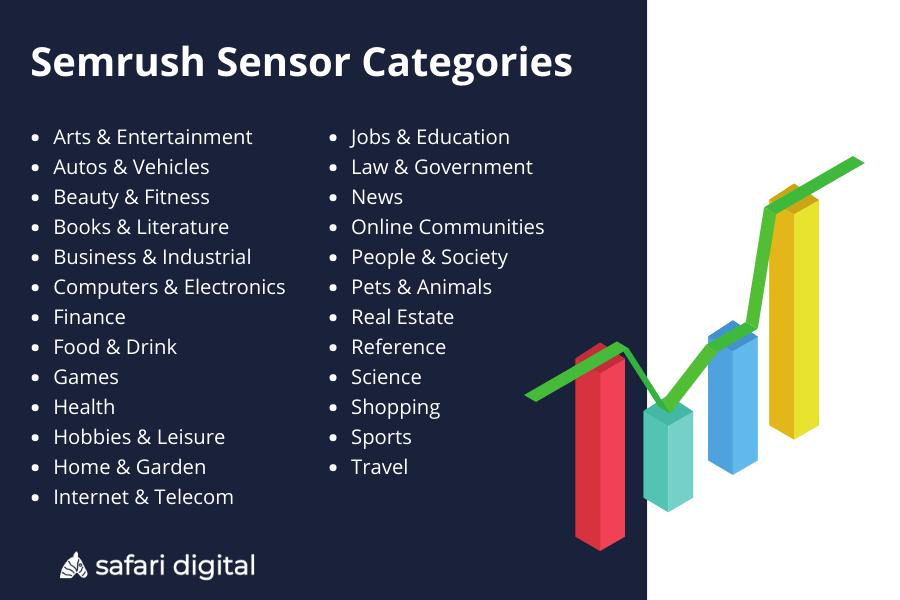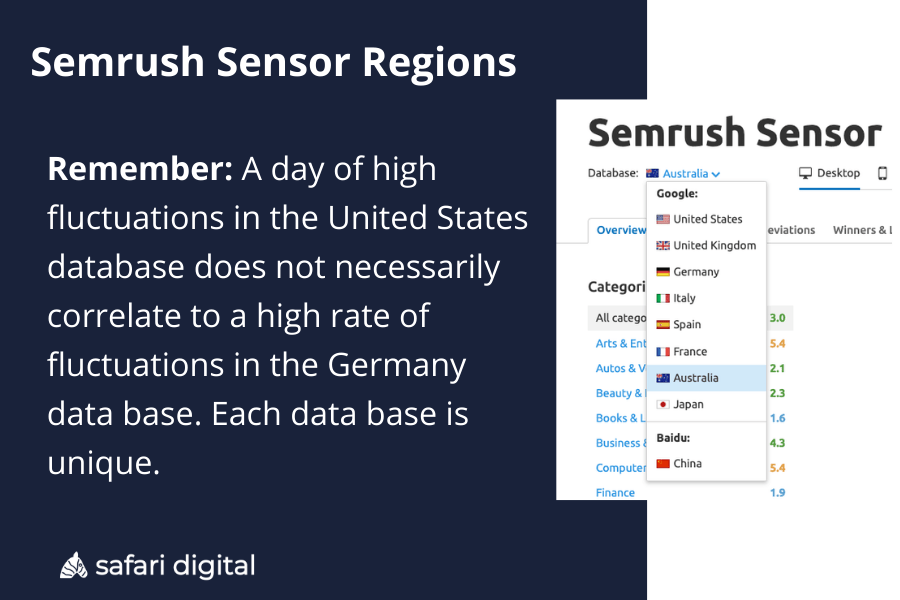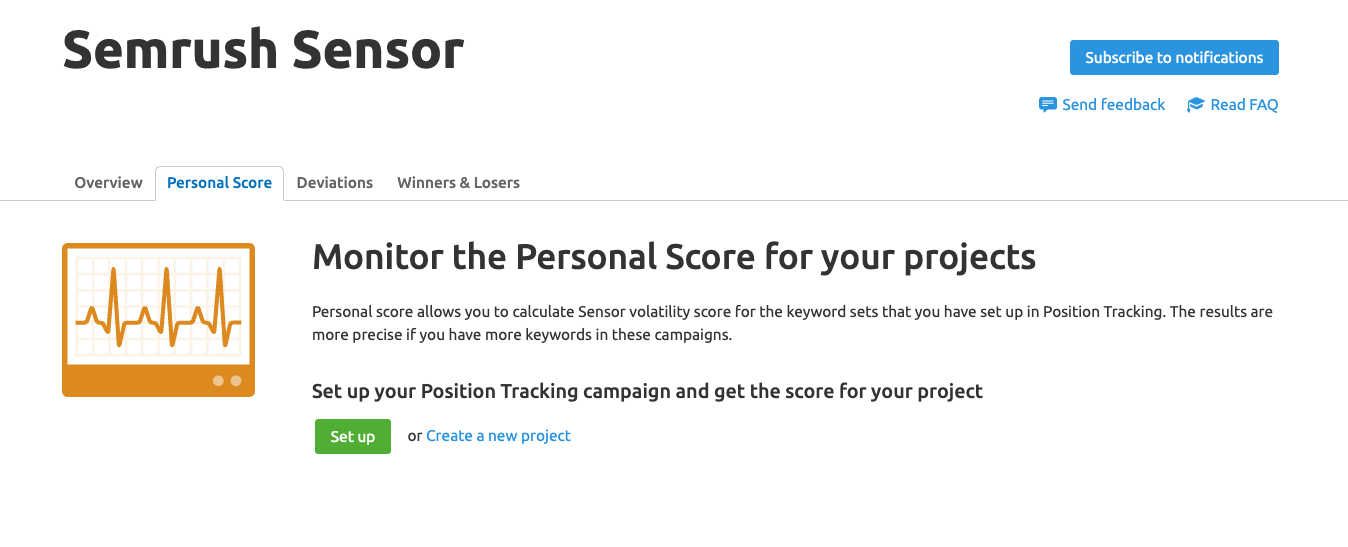
Tracking day-to-day fluctuations in search engines can be a headache for SEO professionals.
With so many moving parts, it can be difficult to understand whether your site has been positively impacted by your actions, or whether Google has made algorithm changes that have sent things in the right direction.
Third-party search engine results pages (SERP) tracking tools like Semrush provide insights into daily search engine fluctuations and help webmasters and SEOs to make informed decisions about changes to website traffic. In this article, we will take a look at the role of Semrush sensor and how you can use it to understand SERP fluctuations.
Table of Contents
What is Semrush Sensor?
The Semrush Sensor is a proprietary SERP monitoring tool designed by Semrush to track fluctuations in the search engines results pages and measure volatility across different niches and industries.
Since 2018, the Semrush sensor has been an invaluable tool for SEO professionals looking to correlate, measure, and understand day-to-day SERP fluctuations. Instead of speculating or guessing as to why things may be volatile on a select number of sites, the Semrush sensor shows an industry wide snapshot of daily fluctuations.
When is Semrush Sensor Data Useful?
The Semrush sensor is helpful for gauging industry-wide changes against site level ranking or traffic changes. For instance, if your website has experienced a sudden increase or decrease in traffic, the Semrush sensor provides a valuable reference point where users can gauge whether these changes were specific to their website or across the entire industry.
The Semrush sensor measures volatility for a category over time. The sensor is updated daily, and all data is available to view for the past 30-days. Once the 30-day period elapses, the data is no longer accessible.
Semrush Sensor Categories
The Semrush sensor covers a broad range of industries and niches which are reflected in the left side ‘All Categories’ tab. Each category features a short description with some examples of websites and industries that may be applicable to the category to help you find the most applicable categories.

All of the categories covered by the Semrush sensor include:
- Arts & Entertainment
- Autos & Vehicles
- Beauty & Fitness
- Books & Literature
- Business & Industrial
- Computers & Electronics
- Finance
- Food & Drink
- Games
- Health
- Hobbies & Leisure
- Home & Garden
- Internet & Telecom
- Jobs & Education
- Law & Government
- News
- Online Communities
- People & Society
- Pets & Animals
- Real Estate
- Reference
- Science
- Shopping
- Sports
- Travel
It is important to remember that each category is unique. Each category will (generally speaking) feature a unique daily sensor score to reflect the changes that are happening in that industry.
For example, in the most recent Google Product Review Algorithm update, we saw huge fluctuations across websites in the e-Commerce categories, but less within categories like ‘Online Communities’ and ‘Sports’.
Generally, large spikes and fluctuations across all industries are reserved for major algorithm updates – like the recent core update.
Semrush Sensor Country Databases
At the time of writing, the Semrush sensor pulls data from nice different countries. The countries featured in the sensor data base include:
- United States
- United Kingdom
- Germany
- Italy
- Spain
- France
- Australia
- Japan
- China (Baidu)
Just like the categories discussed above, each country will have its own sensor scores which fluctuate each day. A day of high fluctuations in the United States database does not necessarily correlate to a high rate of fluctuations in the Germany data base.

Country data bases that share the English language (US, UK, AU) will generally have similar lines of fluctuation. Whereas Germany, Italy, Spain, France, Japan, and China will have different peaks and troughs.
Semrush Sensor Personal Score
The Semrush sensor personal score data allows users to accurately calculate sensor volatility against keyword sets that they are tracking. In some cases, you may have keywords that fall across different industries so the personal score tab enables you to monitor fluctuations against specific keywords. These results are more precise and more tailored than simply checking the most relevant category tab.

Should You Use the Semrush Sensor?
Yes, the Semrush sensor is one of the most valuable tools in Safari Digital’s SEO tool stack and the one that we trust to monitor daily SERP fluctuations. If you are an SEO professional that is serious about understanding cause and effect in your SEO work, then it’s important to monitor daily changes to SERPs against recent changes to understand the driving force behind ranking changes.







